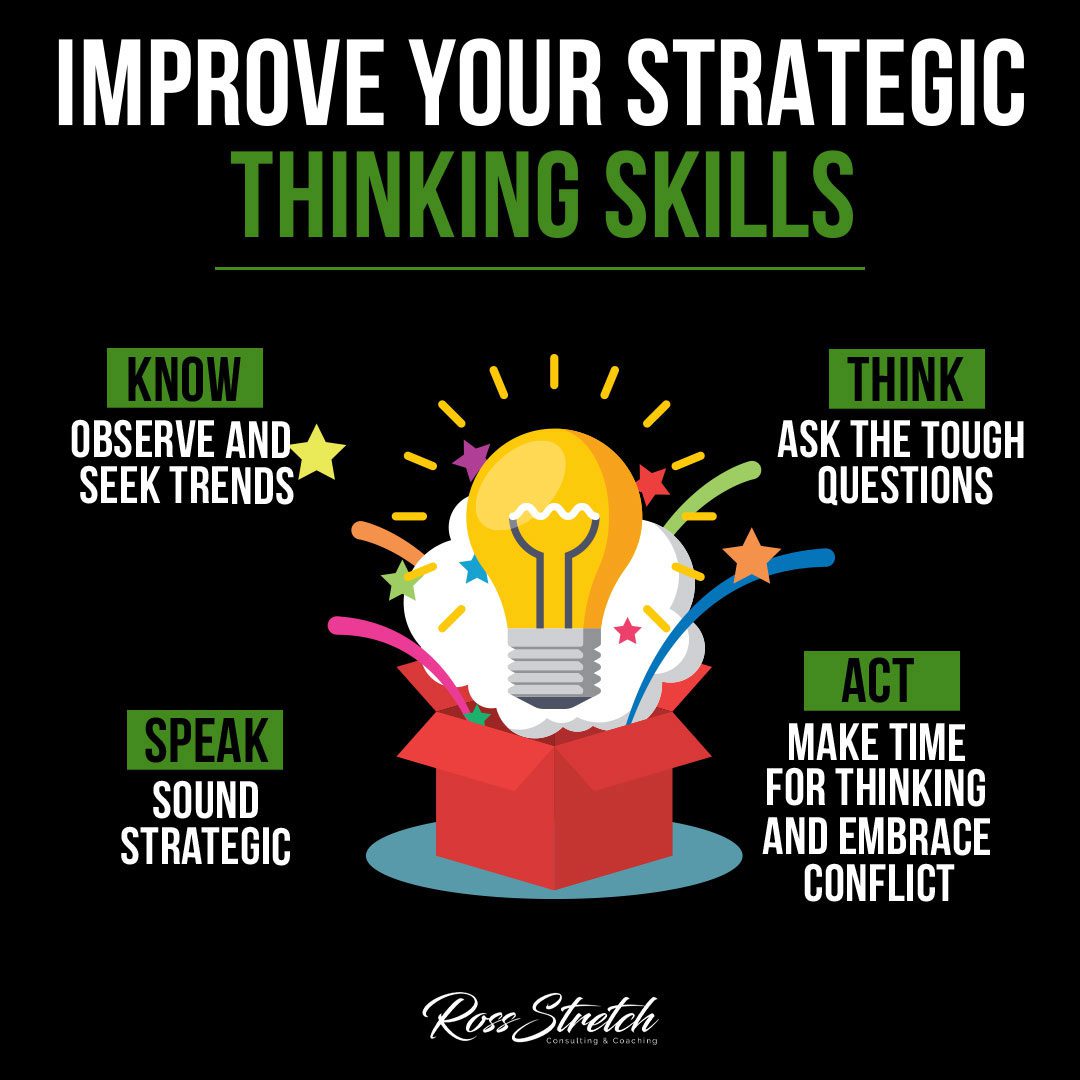Introduction
Strategic thinking is a crucial skill for navigating complex challenges and making informed decisions. In this article, we will explore four essential techniques to improve your strategic thinking skills. By honing these abilities, you can enhance your problem-solving capabilities and gain a competitive edge in various aspects of your personal and professional life.
Remember, strategic thinking is a continuous practice that requires dedication and an open mindset. With consistent effort, you can develop and refine your strategic thinking abilities, enabling you to navigate challenges and achieve greater success in your endeavors.
Ross Stretch
Observe and Seek Trends
Understanding the landscape and identifying emerging trends are fundamental to strategic thinking. By staying informed and observing patterns, you can anticipate changes and make proactive decisions.
Stay Ahead of the Curve with Trend Observation
Keep a finger on the pulse of your industry or area of interest. Regularly read industry publications, follow thought leaders, and attend relevant conferences or events. Seek out trends, technological advancements, and shifts in consumer behavior. This knowledge will empower you to make strategic choices based on informed insights.
Ask the Tough Questions
Effective strategic thinkers are not afraid to ask challenging questions. By probing deeper and critically analyzing situations, you can uncover hidden opportunities, anticipate risks, and develop innovative solutions.
Challenge the Status Quo with Critical Thinking
Engage in thoughtful analysis by asking thought-provoking questions. Consider different perspectives, evaluate assumptions, and challenge existing beliefs. By diving deeper into the underlying factors and motivations, you can gain a clearer understanding of complex situations and generate creative ideas.
Sound Strategic
Being able to articulate your thoughts and ideas strategically is crucial for effective communication and influence. Develop the ability to convey your vision, goals, and strategies in a clear and concise manner.
Communicate with Impact and Clarity
Craft your messages carefully to ensure they align with your strategic objectives. Use concise and compelling language to convey your ideas effectively. Tailor your communication style to resonate with your audience, whether it’s executives, team members, or stakeholders. Strong and strategic communication skills will help you gain support and alignment for your strategic initiatives.
Act: Make Time for Thinking and Embrace Conflict
Strategic thinking requires dedicated time and space for reflection. Create an environment that fosters strategic thinking and encourages healthy debate and conflict resolution.
Cultivate a Culture of Strategic Reflection and Collaboration
Carve out regular blocks of time in your schedule for deep thinking and strategic reflection. Allow yourself the freedom to explore new ideas, evaluate different scenarios, and assess potential risks and rewards. Additionally, embrace healthy conflict as an opportunity for growth and refinement. Encourage diverse perspectives, facilitate open discussions, and create an atmosphere where innovative ideas can flourish.
Conclusion
Enhancing your strategic thinking skills is a valuable asset in today’s complex and ever-changing world. By observing trends, asking critical questions, communicating strategically, and embracing conflict, you can elevate your strategic mindset and make more informed decisions. Remember, strategic thinking is a continuous practice that requires dedication and an open mindset. With consistent effort, you can develop and refine your strategic thinking abilities, enabling you to navigate challenges and achieve greater success in your endeavors.


